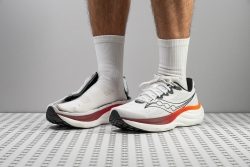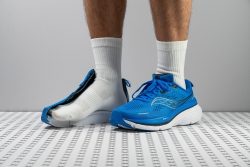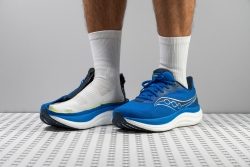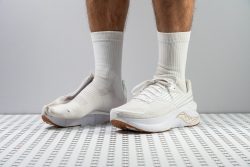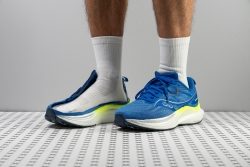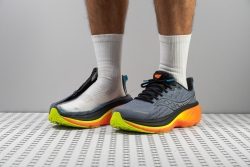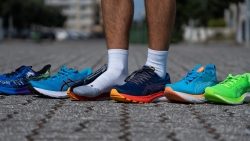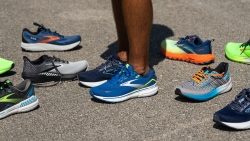6 Best Saucony Walking Shoes in 2025
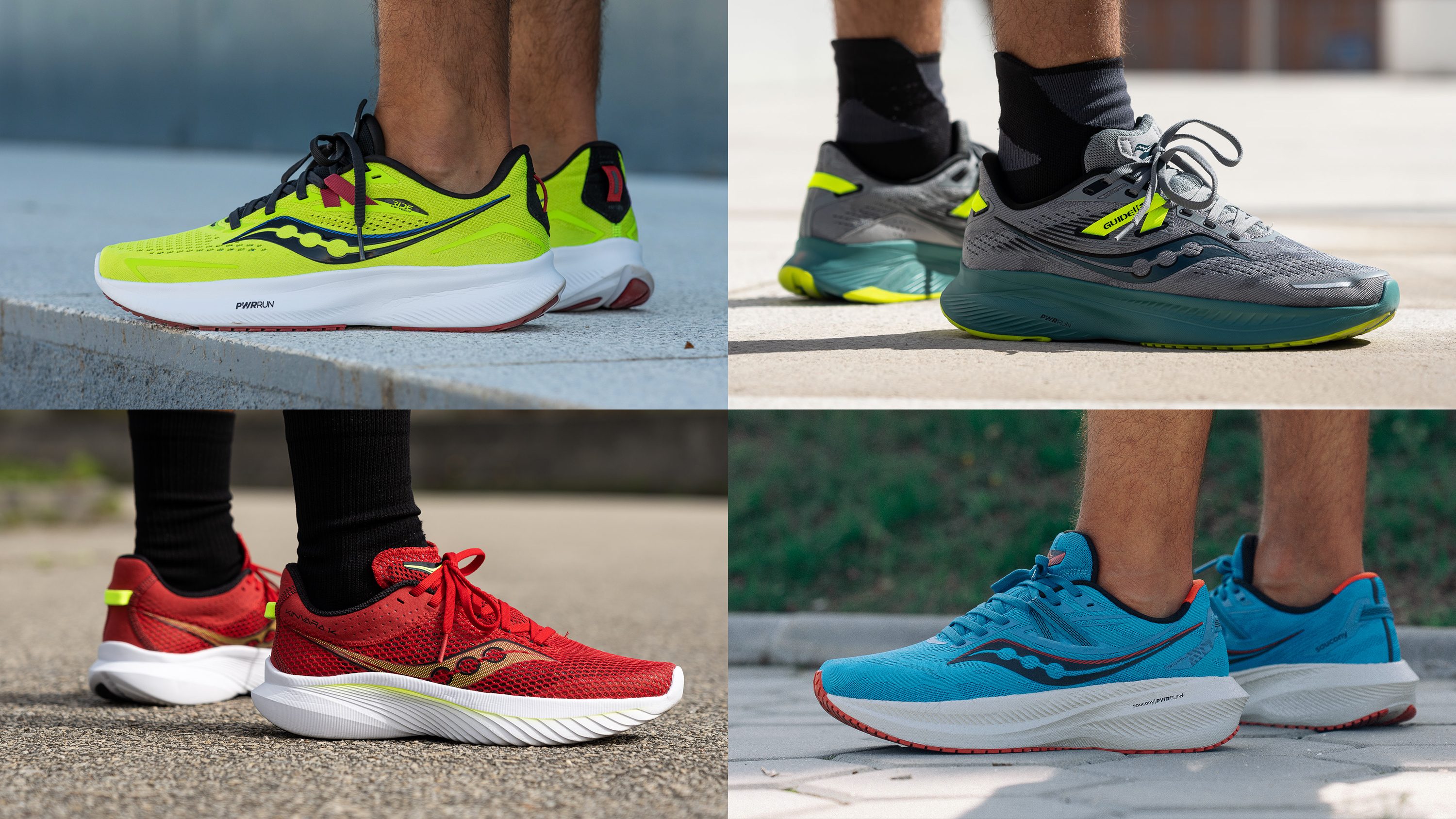
We buy shoes ourselves. We earn commissions when you buy through us, at no extra cost. Why trust us
Whether you’re working, exploring a new city, or walking the dog, you need a dependable shoe that provides comfort and support all day long. Known for its notable cushioning, ankle support, and durability, the Saucony walking shoes have gained the trust of many health-conscious consumers.
We’ve reviewed Saucony's walking shoes by going into them ourselves. We have spent an unimaginable amount of time just to give each shoe a proper and thorough scrutinization before giving our in-depth reviews. After double-checking and testing all models, we’ve rated and ranked each shoe based on our gathered data for this guide. Head to our recommendations to find your perfect pair.
How we test Saucony walking shoes
To make it easy for everyone who’s looking for an ideal fit, we’ve subjected all the Saucony footwear in the database to a battery of tests. This means meticulous vetting of each model in the RunRepeat lab, and putting on the shoe for long walks on a variety of surfaces.
The steps we take include:
- Buying the walking shoes from Saucony with our own money. We don’t accept sponsorship when publishing our in-depth reviews and commentaries to keep everything 100% real and honest.
- Testing each model’s comfort, supportive features, and durability by clocking lots of steps. We also try on the Saucony kicks on different surfaces to test their strengths and weaknesses. We then write about our personal insights and assessments.
- Scrutinizing the shoes through standardized mechanical tests and making comparisons with other shoes in terms of overall performance and value. Additionally, we chop up the shoes to reveal the inside parts.
Best Saucony walking shoes overall
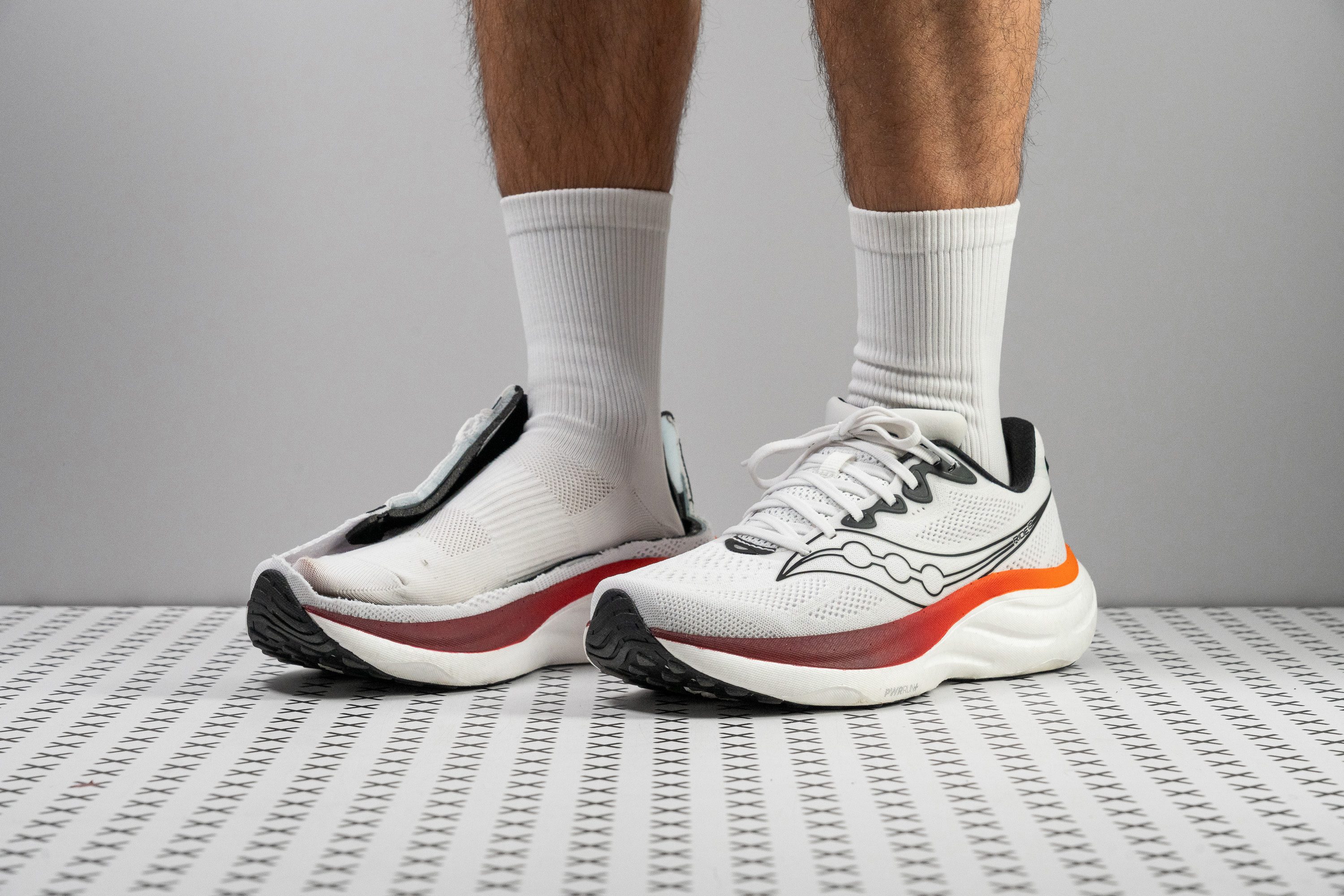













































What makes it the best?
We cannot pick any other Saucony walking-running shoe apart from Ride 19, considering all the aspects that compose an outstanding shoe. From its impact protection, bouncy ride, and excellent durability, this pair was a remarkable surprise in our wear and lab tests.
Our feet feel cushioned and supported all day with Ride 19’s 38.7/30.2 mm stack. We had plenty of foam to mute out the harshness of the ground, with high shock absorption scores of 132 SA in the heel and 118 SA in the forefoot. Both results exceed the standard, proving its ability to soothe our muscles during high-mileage efforts.
Ride 19 felt dependable when we wanted to speed up our runs. Despite its thickness, it never felt too heavy underfoot because of its springy sensation. In our energy return test, we recorded solid scores of 66.7% in the heel and 70.7% in the forefoot.
We brought Ride 19 everywhere, and the outsole proved to be durable! Despite limited coverage, the XT-900 rubber proved to be invincible in our Dremel test, displaying only a minimal 0.6 mm dent.
However, we find that its stiffness takes away the natural and relaxed feel some people enjoy. If this is a dealbreaker, we recommend checking more flexible shoes.
Pros
- High energy return
- Even more foam underfoot than v18
- Excellent durability overall
- Keeps its dependable DNA
- Outstanding breathability
- Wide and stable platform
- XT-900 rubber delivers good grip
- Secure fit with semi-gusseted tongue
- Excellent value
- Clean, improved aesthetics
Cons
- Heavier than previous version
- High stiffness won't suit everyone
- Limited rubber coverage
- Minor price increase
Saucony walking shoes with the best arch support
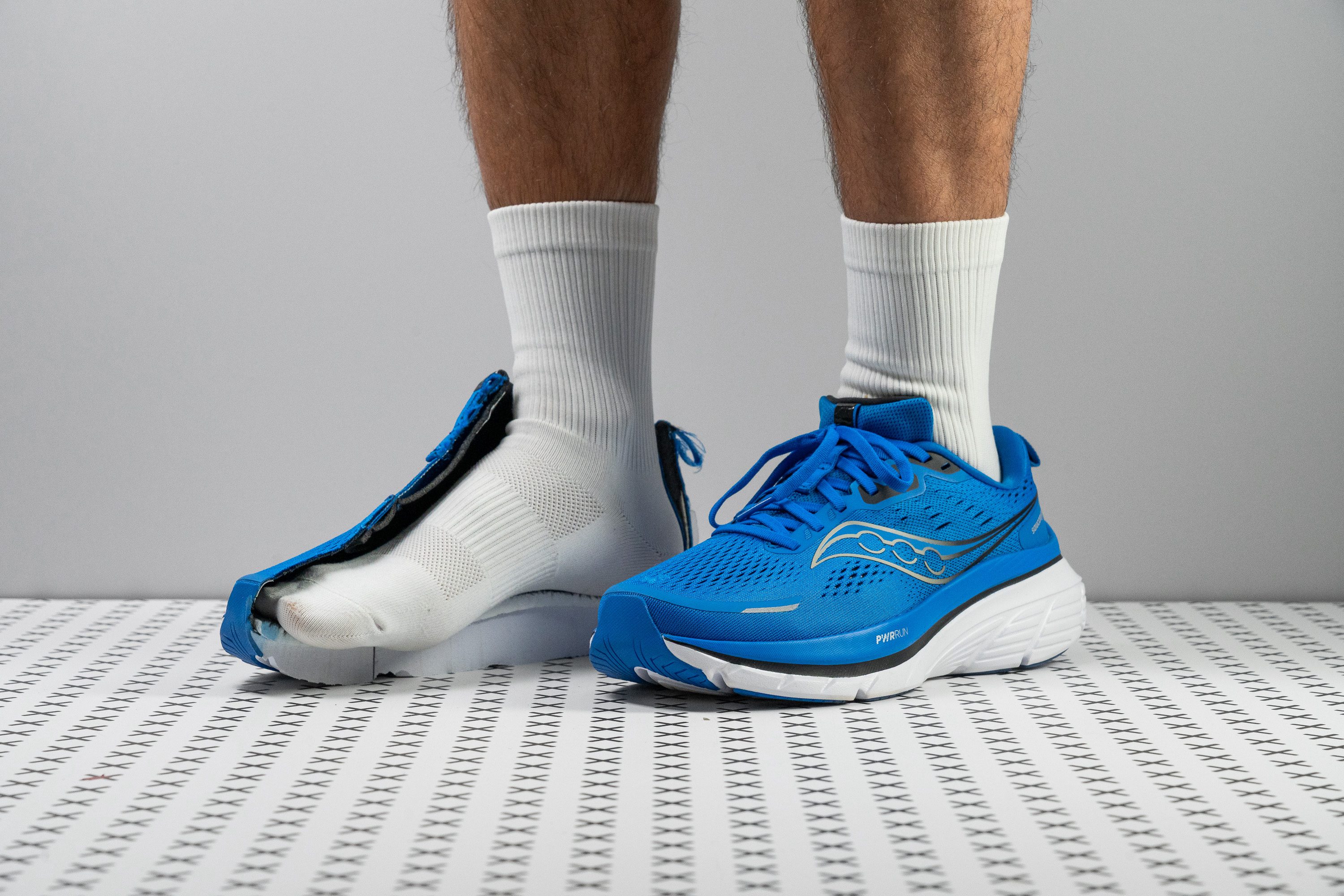















































What makes it the best?
Light and loose, here’s a chill kick for our daily walks and runs. Our lab tests prove Saucony Guide 18 seamlessly guides our strides without being intrusive, offering a reassuring hand when needed. It delivers all-day pleasure with its cushioned and flexible midsole, an unusual stability feature, offering the best arch support in the Saucony walking-running lineup.
While it’s not the lightest shoe out there, Guide 18 is remarkably light in the stability realm. At 9.8 oz (278g), it beats the 10.1 oz (286g) average of its counterparts. Offering a lighter sensation on the foot is the unresisting midsole which showed 8.9% higher flexibility than average in our bend test. These elements deliver an effortless and burden-free ride.
Guide 18 managed to impressively maintain a light build despite its above-average 36.0/27.7 mm stack. Our durometer reveals it’s a balanced 23.0 HA, offering leg protection and relieving the strain off our arches.
To enhance stability, Guide 18 has several reinforcing elements such as the midsole walls, heel flare, and vast landing base. Each stride feels secure as we have much room to find our footing. Our lab reveals the midsole measures 7.8/14.3 mm wider than the average forefoot and heel.
What we found lacking is the grip for wet surfaces. Those who often encounter puddles and rain should find a pair with better traction.
Pros
- Upper now has exceptional breathability
- Stable yet non-restrictive ride
- Cushioned enough for long runs
- Handles walking too
- Impressively wide platform
- PWRRUN PB insole
- Secure and comfortable lockdown
- Excellent heel rocker design
Cons
- Too much exposed foam on outsole
- Feels bulky and not agile
- Midsole runs a bit firm
Saucony walking shoes with the best shock absorption
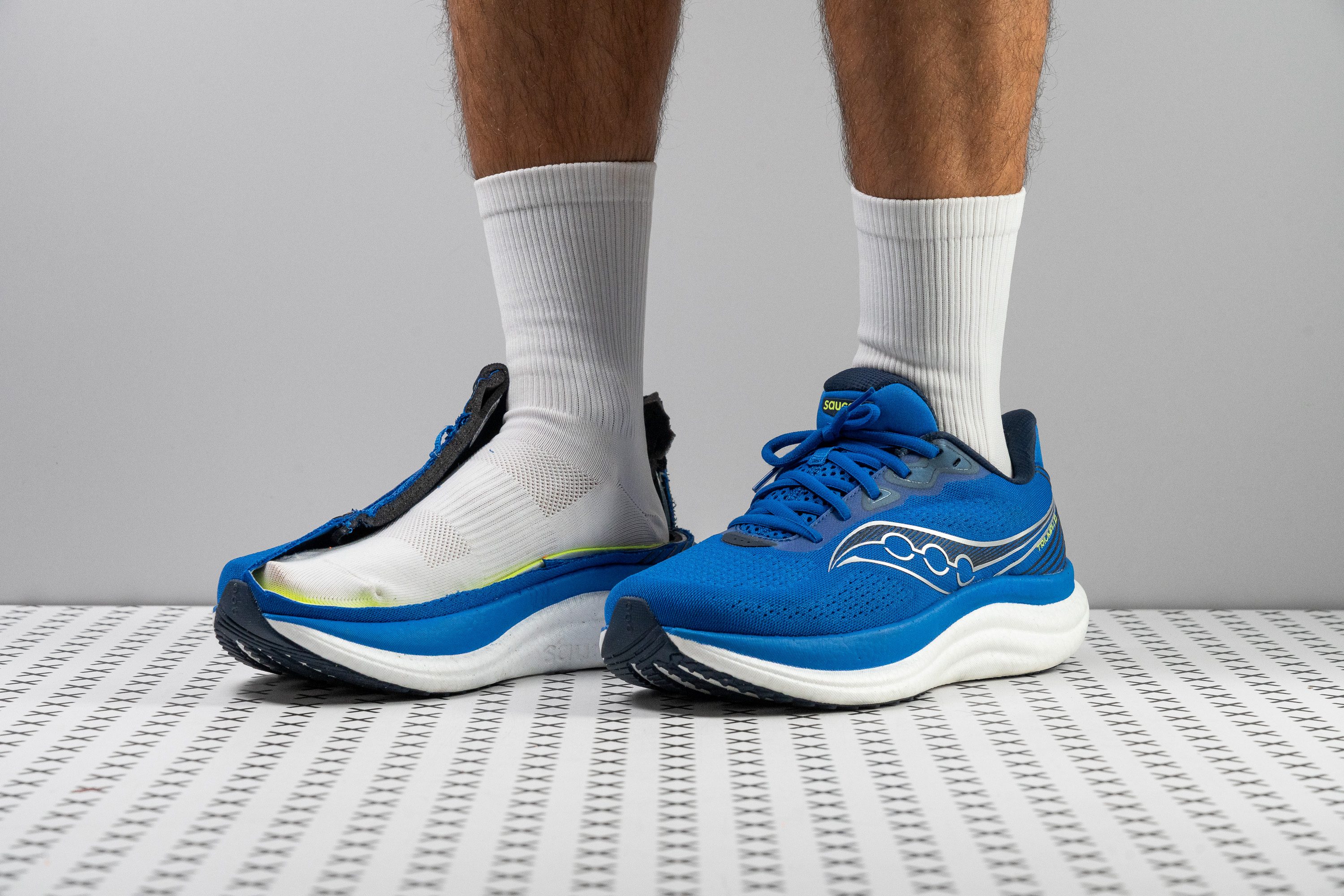












































What makes it the best?
Our walks received a significant upgrade while sporting Saucony’s Triumph 23. Our lab assessment reveals it features the premium PWRRUN PB midsole, which our legs truly savored due to its responsive feel and leg-saving properties. In the realm of shock absorption, the Triumph 23 is beyond compare to the brand’s walking-running shoe lineup.
The plush and generous cushioning eliminates the harshness of each landing. Our caliper reveals a generous serving of cushioning, rising to a massive 42.3/32.3 mm. Testing the midsole, we found it offers a high shock absorption rate of 149 SA, 16.4% better than average. Its energy return also impressed us with a high 67.6% score. The whole package takes good care of us on prolonged on-foot travels because it feels less taxing on our muscles and joints.
Thankfully, its height doesn’t compromise support as the midsole sidewalls and vast width ensure our surefootedness. These stability features are very subtle, highlighting the shoe’s emphasis on comfort. Our caliper confirms the landing base is a very spacious 124.0/98.9 mm vs. the 114.3/90.8 mm average.
We think the shoe’s ventilation has room for improvement. Given its 3/5 breathability rating, we cannot recommend this pair during warmer seasons.
Pros
- Amazing energy return
- Lighter than previous version
- Huge cushioning for long runs
- Wide platform makes it really stable
- Full PWRRUN PB midsole
- Premium sockliner
- Durable build overall
- Versatile enough for daily wear
- Consistent performance in cold temps
- Excellent grip
Cons
- Price increase
- Ventilation could be improved
- PWRRUN PB may feel firm to some
- Bulkier build limits agility
Best Saucony walking shoes for all-day wear
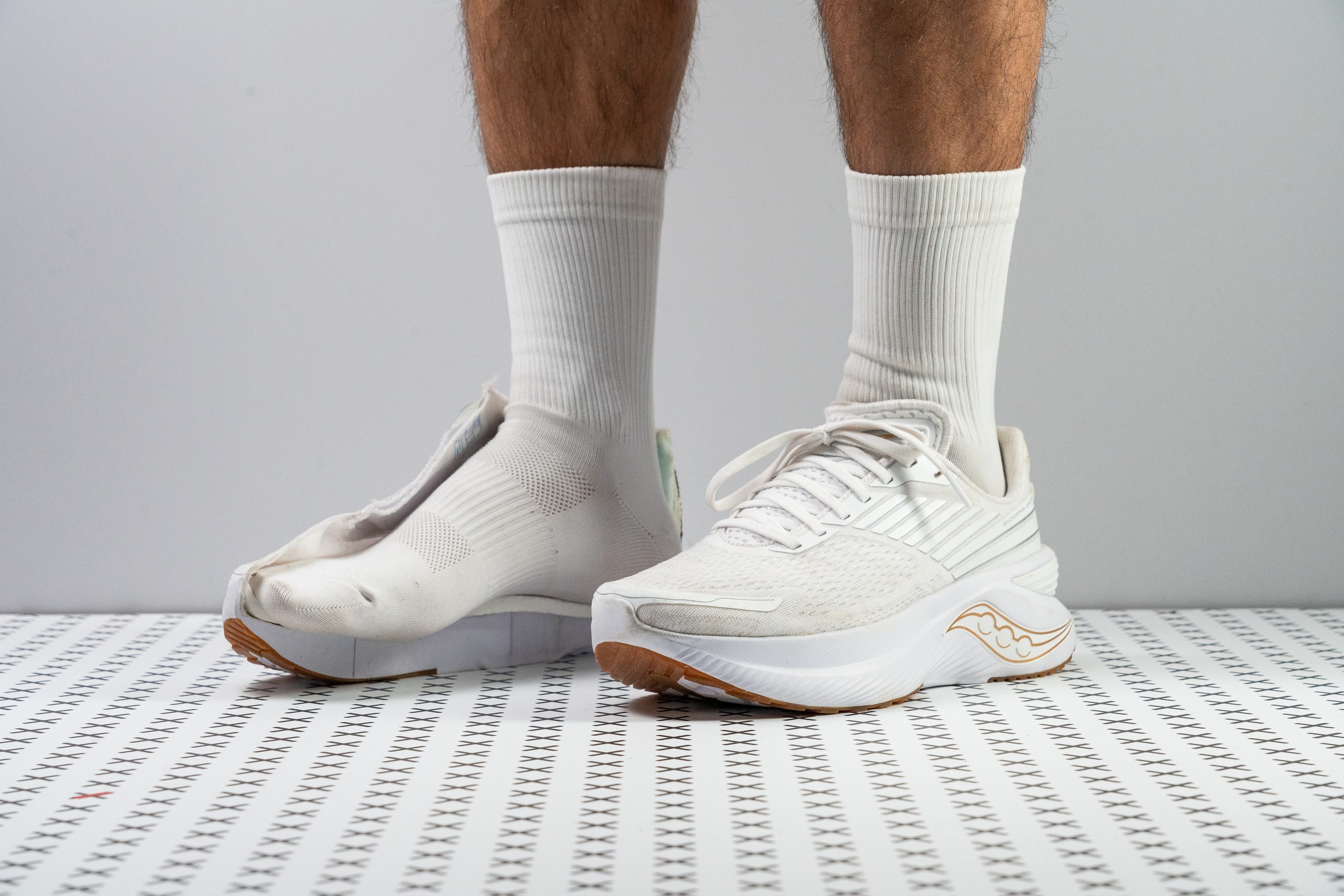





























What makes it the best?
Laborious testing of Saucony walking shoes led us to the decision of surmounting Saucony Endorphin Shift 3 as the best for all-day wear. We found that it isn’t only perfect for day to night because of its unbelievable in-shoe feel but because of its versatility and stylishness. No pain, all gain - this is what this shoe is all about!
One of the many reasons why we didn’t mind being in Shift 3 for hours was its fantastic ventilation. The air smoothly circulates in and out of the shoe as clearly shown in our breathability test. We pumped smoke inside it and the upper easily coughed the smoke out, scoring 4/5 in breathability.
Whether we were touring or working, we didn’t feel like we were carrying weights down our legs with Shift 3. Our weighing scale displayed a 9.4 oz (266.0g) weight, which is only 1.9% lighter than average. This was surprising for us because it felt so much lighter than on paper.
We also loved the cushioning of Shift 3, which made it seem like we were stepping on pillows. We turned to our durometer and we discovered that the midsole is 22.0 HA soft, which is 10.6% softer than average. What sucked was that the shoe wasn’t that accommodating. Using our caliper, we learned that the widest part of the toebox measured 94.2 mm. This is 3.7 narrower than the average. So if you have bunions or generally have wide feet, we suggest skipping this pair.
Pros
- Light for a maximal shoe
- Comfy and secure upper
- Softer than before
- Surprisingly stable
- Very versatile
- Protective underfoot
- Above average durability
- Doubles as a sneaker
Cons
- Very big
- Not for wide feet
Saucony running shoes with the best traction
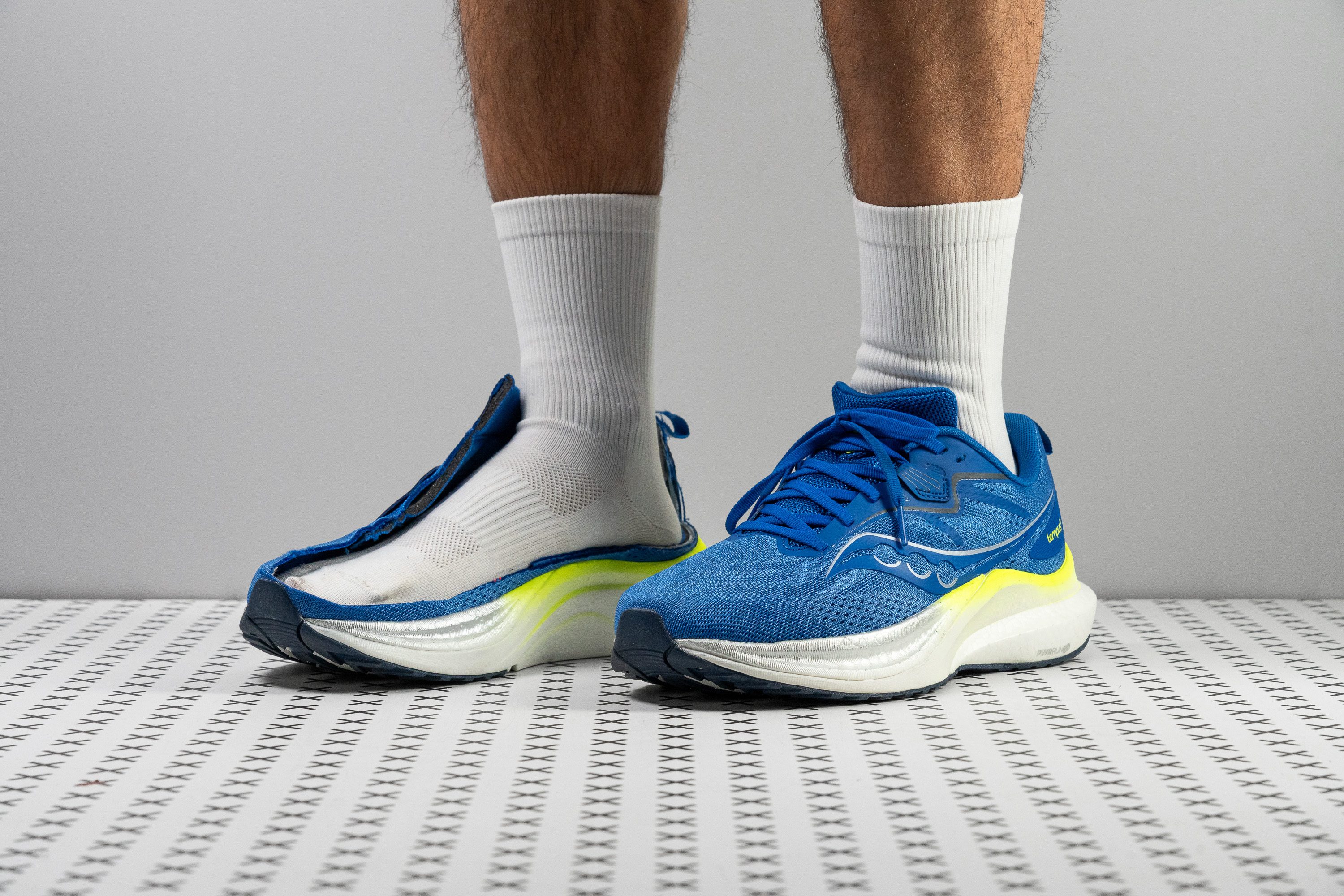














































What makes it the best?
Saucony Tempus 2 is a trailblazer in the stability scene. In our runs, it delivers speed, all-weather grip, and support in a lightweight package. Its guidance doesn’t disrupt our natural way of running, and it's built for fast paces. However, in the lab, it dominated our traction test among Saucony walking-running shoes.
The XT-900 outperforms many of the Tempus 2’s counterparts with its exceptional blend of grip and wear resistance. In our traction test, we recorded a friction coefficient of 0.63, making it 28.6% grippier than average. Moreover, it displayed impressive durability, with only a minimal 0.4 mm dent in our Dremel test.
Tempus 2 feels agile and responsive on foot, and our scales show it’s only 9.3 oz (264g). This figure is really light for a stability shoe. Moreover, the midsole itself offers strong energy return, with high scores of 69.9% in the heel and 72.2% in the forefoot.
We also discovered the PWRRUN frame in the lab, which is Tempus 2’s core support. It keeps our strides well-centered and prevents excessive lateral motions, proven by its 4/5 torsional rigidity score. Thankfully, it doesn’t sacrifice longitudinal versatility. Our bend test reveals it’s as flexible as the average, making it comfortable enough for slow runs or walks.
However, the Tempus 2 features a tapered fit, which may cause discomfort to wide or swollen feet. Runners who need more real estate up front should check other options.
Pros
- Excellent energy return
- Very stable ride
- Durable and grippy outsole
- Classic, non-aggressive rocker
- Works amazing for heel strikers
- Solid and secure fit
- No price increase from v1
- Perfect as a daily workhorse
Cons
- Poor breathability
- Feels a bit too firm
- Slight weight increase
- Fit is narrow in the forefoot
Saucony walking shoes with the best energy return
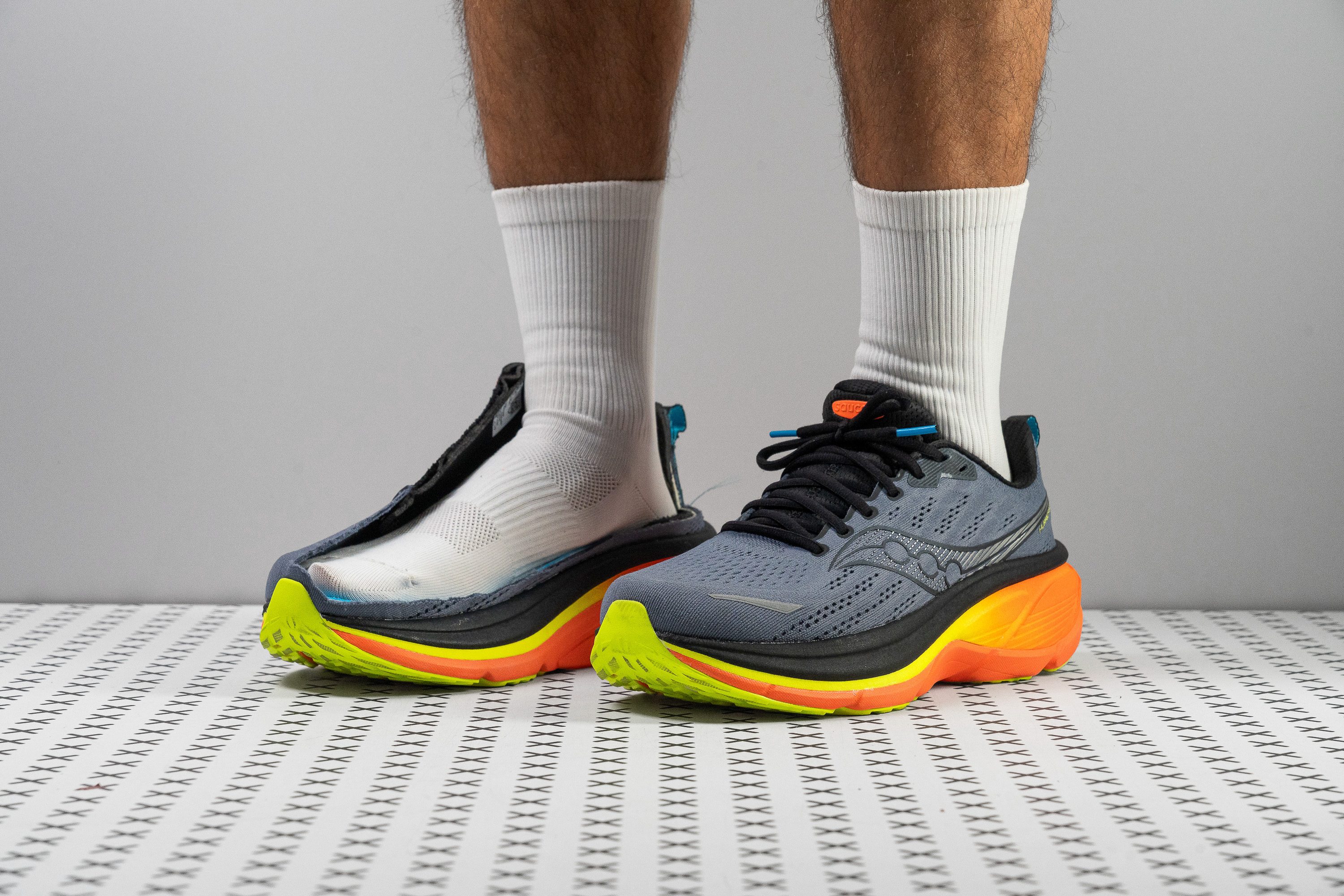














































What makes it the best?
In the Saucony walking-running category, the Hurricane 25 stood out with its undeniable energy return. It wanted us to keep going with its strong momentum, balanced by an impact-absorbing midsole, as lab tests confirm. Moreover, it features a quality rubber compound that offers the perfect blend of grip and durability.
During our wear tests, we enjoyed the PWRRUN PB foam’s bouncy nature. We could easily break out into a run if we wanted to. Testing for energy return, we recorded strong scores of 68.4% in the heel and 74.0% in the forefoot, figures exceeding the level of daily trainers.
With a thick 40.2/33.1 mm stack beneath our feet, it’s hard to feel the harshness of the ground. Not only that, the cushion itself reduces the effects of landings, proven by solid shock absorption scores of 151 SA in the heel and an astounding 140 SA in the forefoot.
The XT-900 outsole boosts our confidence with its underfoot protection and slip-resistance. Testing for traction, we recorded a high friction score of 0.54, indicating all-weather grip. In terms of wear resistance, it showed only a 0.9 mm dent, 18.2% less than the average. This result shows it’s a long-lasting shoe.
However, its poor ventilation didn’t feel so good in warm weather. Therefore, we can only recommend this pair during cooler seasons. Those looking for a year-round trainer should skip this shoe.
Pros
- Fantastic energy return with PWRRUN PB foam
- Lighter than previous version
- Excellent cushioning for long miles
- Top-tier stability with redesigned midsole
- Upper offers top comfort
- Outsole redesign with improved grip
- Premium SRS insole
- Top-tier stability thanks to midsole redesign
Cons
- Price hike from previous version
- Poor breathability
- Lacks agility due to its size

